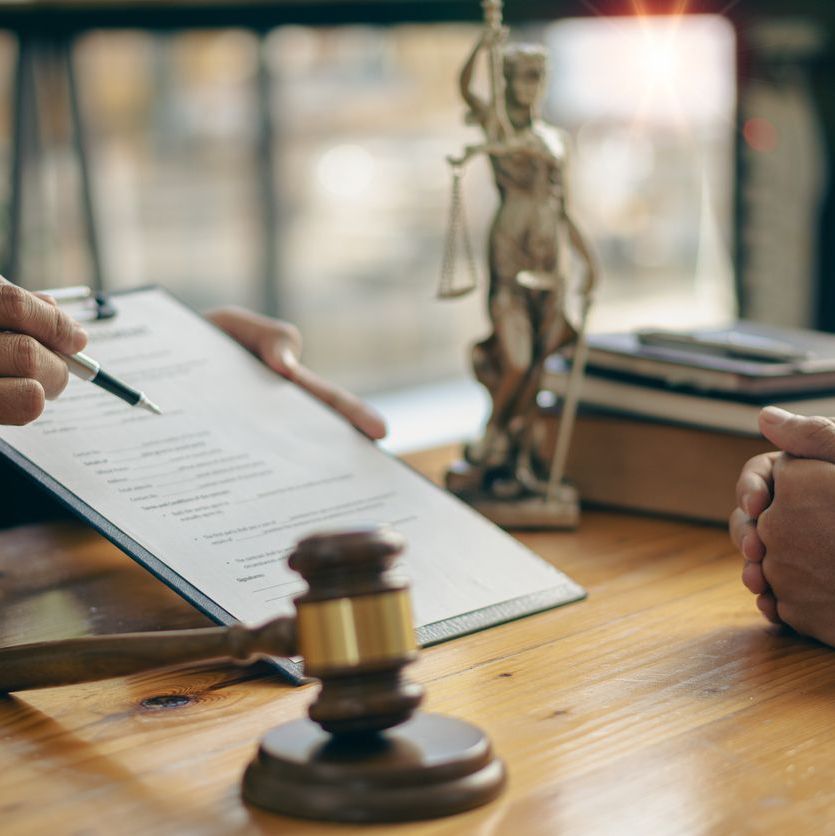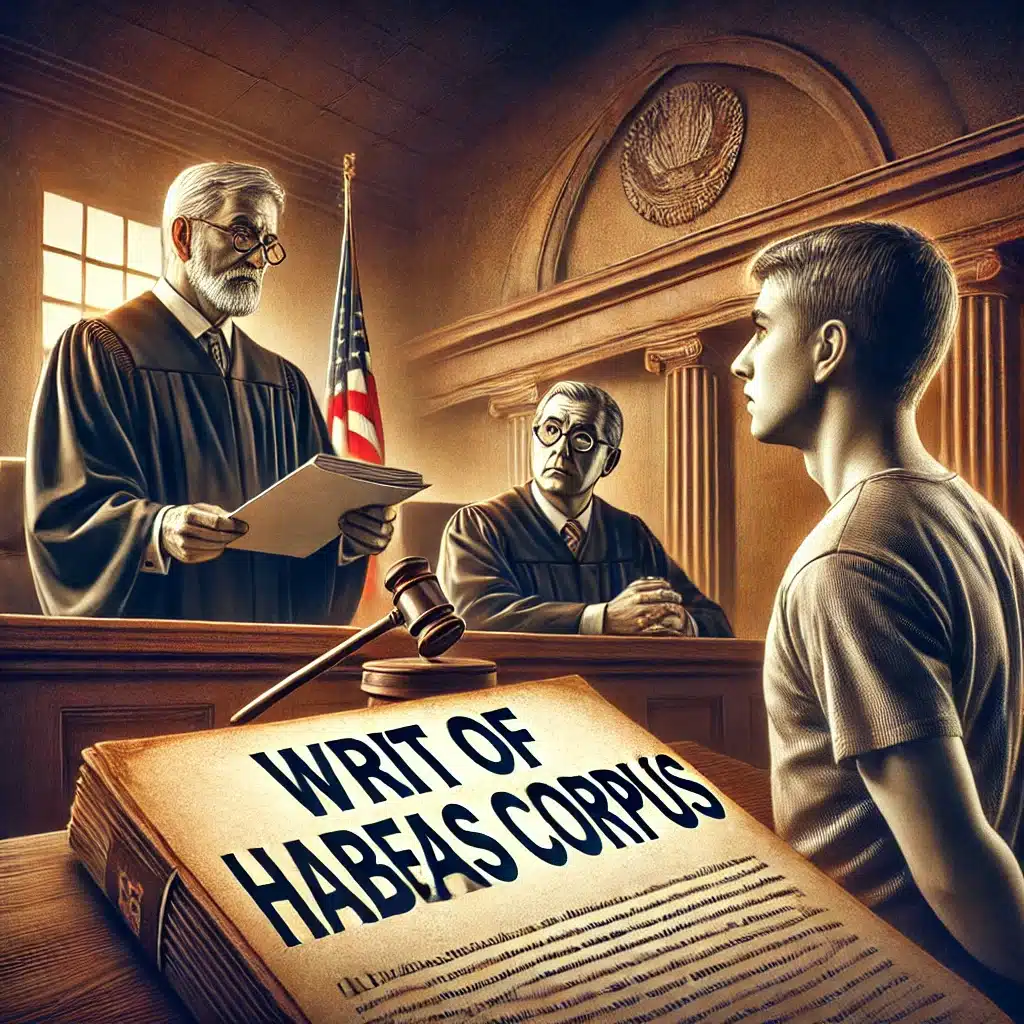Lawyer's Guide to Habeas Corpus: Safeguarding Your Liberty and Rights
Lawyer's Guide to Habeas Corpus: Safeguarding Your Liberty and Rights
Blog Article
Understanding the Function of a Post-Conviction Lawyer in Looking For Justice After a Criminal Conviction
In the facility landscape of post-conviction legal procedures, the role of a post-conviction attorney is pivotal in navigating the course to justice after a criminal sentence. Beyond the boundaries of a test, these lawful experts engage in a multifaceted approach focused on revealing brand-new evidence, tough legal mistakes, and promoting for their customers' rights. The complexities of post-conviction work need a blend of lawful acumen, investigative skills, and critical assuming to unravel the intricacies of an instance and pursue methods that may have been forgotten or underexplored. As the quest of justice prolongs past the boundaries of first proceedings, the function of a post-conviction attorney becomes a sign of hope for those seeking to remedy oppressions and reclaim their legal rights within the lawful system.
Post-Conviction Legal representative's Investigative Work
Post-conviction attorneys engage in precise investigatory work to discover new proof, procedural errors, or transgression that might possibly bring about rescinding a sentence. This investigatory phase is vital in the post-conviction procedure as it intends to determine any type of forgotten information or legal missteps that may have affected the end result of the first test. Post-conviction attorneys explore case data, witness testimonies, and lawful paperwork with a fine-tooth comb, looking for any disparities or abnormalities that might be grounds for charm.
Via complete investigation, post-conviction attorneys aim to lose light on prospective injustices that might have taken place throughout the original test. By inspecting every element of the legal process, post-conviction attorneys work relentlessly to reveal any type of variables that might have influenced the judgment.
Crafting Appeals and Petitions
In the pursuit of justice after a sentence, skilled legal representatives carefully craft appeals and requests to existing compelling arguments for the reconsideration of lawful choices. Crafting charms and applications requires a deep understanding of the lawful system, interest to information, and strategic thinking. Post-conviction legal representatives analyze test documents, identify prospective mistakes or violations of civil liberties, and create lawful arguments to challenge the conviction or sentence.
When crafting a charm, legal representatives focus on highlighting lawful mistakes that may have impacted the end result of the case. They look into instance legislation, laws, and lawful criteria to sustain their debates. Petitions, on the other hand, might include offering brand-new evidence that was not available throughout the trial or demonstrating modifications in the law that require an evaluation of the conviction.
Additionally, post-conviction attorneys need to stick to strict step-by-step guidelines and deadlines when submitting charms and petitions. They need to offer their arguments plainly and persuasively to convince the court to grant relief to their clients. With meticulous crafting of charms and petitions, post-conviction lawyers strive to safeguard justice for people that have actually been wrongfully convicted or unjustly punished.

Going After Post-Conviction Relief
Seeking alleviation after a conviction requires a tactical and persistent technique by experienced attorneys. Post-conviction alleviation encompasses a series of legal mechanisms made to test the credibility of a sentence or sentence (louisiana federal habeas corpus attorneys). These methods include submitting movements for a brand-new test, going after charms, looking for writs of habeas corpus, and offering newly found evidence. Post-conviction lawyers play an important function in browsing these complicated procedures, making certain that all lawful options are explored to correct injustices that may have happened during the trial or sentencing phase.
One typical kind of post-conviction relief is filing an application for post-conviction relief, generally based on cases of inadequate aid of advise, prosecutorial transgression, newly discovered proof, or constitutional offenses. These petitions require a thorough analysis of the test document, lawful research study, and influential advocacy to persuade the court to provide alleviation. Experienced post-conviction lawyers have the abilities and expertise essential to determine practical lawful cases, conduct examinations, and existing engaging disagreements to safeguard relief for their clients. By diligently pursuing post-conviction alleviation, these attorneys strive to remedy losing the unborn babies of justice and promote the concepts of fairness and due process in the criminal Clicking Here justice system (Lawyer).
Making Use Of Forensic Evidence
When testing a sentence or sentence, the tactical use of forensic proof can be an effective device in post-conviction legal procedures. Forensic proof incorporates a vast array of scientific methods made use of to check out criminal offenses and develop facts in court. Post-conviction lawyers can leverage forensic proof to challenge the credibility of convictions by offering new scientific findings that were not readily available during the initial trial.

Taking Part In Sentence Modifications
Post-conviction legal representatives may explore the possibility of sentence modifications as a legal opportunity to resolve out of proportion or unjust sentences handed down in criminal cases. Sentence alterations include seeking changes to the regards to an offender's sentence after a conviction has actually taken location. These modifications can consist of minimizing the length of a sentence, altering the kind of punishment imposed, or exploring alternative sentencing options.
Post-conviction legal representatives can pursue sentence adjustments via various lawful systems, such as submitting movements for sentence decrease, appealing for caring launch, or bargaining plea offers for decreased sentences. They have to meticulously evaluate the conditions of the case, analyze the legal premises for seeking an alteration, and existing engaging arguments to the court supporting the requirement for a modified sentence.
Taking part in sentence adjustments requires an extensive understanding of criminal legislation, punishing standards, and the certain procedures entailed in looking for post-conviction relief. Post-conviction attorneys play a vital duty in supporting for fair and simply end results by challenging sentences that are unduly extreme or do not line up with the concepts of justice.
Conclusion
To conclude, the function of a post-conviction legal representative is important in seeking justice after a criminal sentence. Via investigatory job, crafting allures and petitions, going after post-conviction alleviation, utilizing forensic proof, and taking part in sentence adjustments, these lawyers play an important function in advocating for their customers and making certain that their legal rights are upheld within the criminal justice system. Their commitment and knowledge are important in navigating the intricacies of post-conviction process and accomplishing a reasonable outcome for individuals encountering criminal convictions.
Report this page